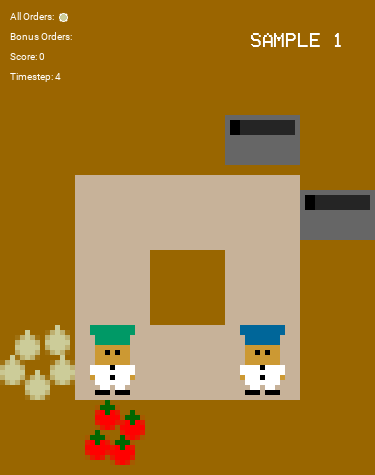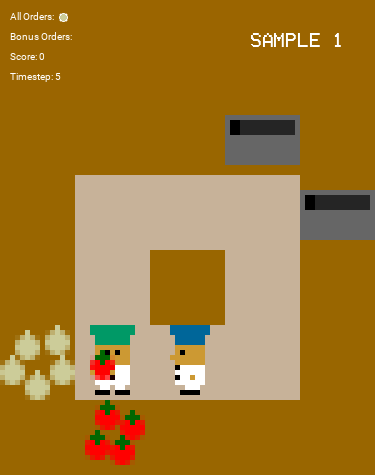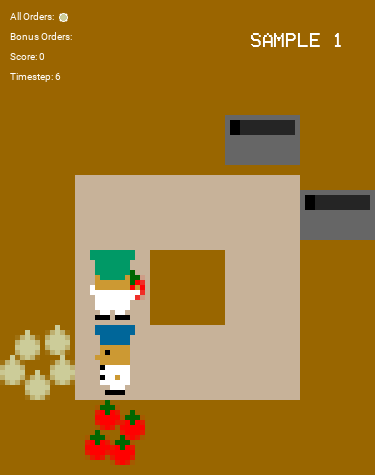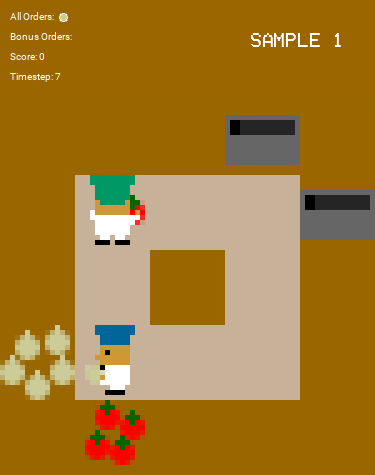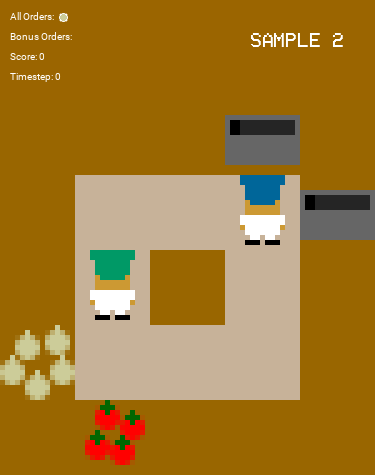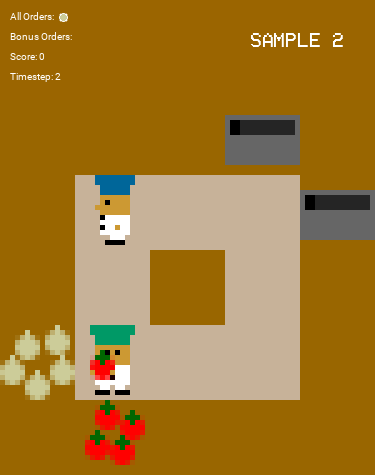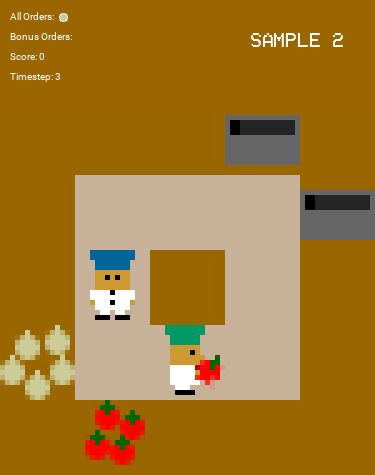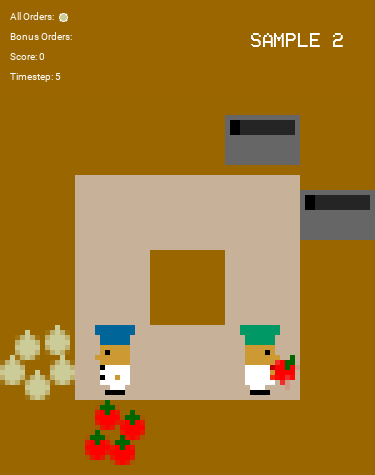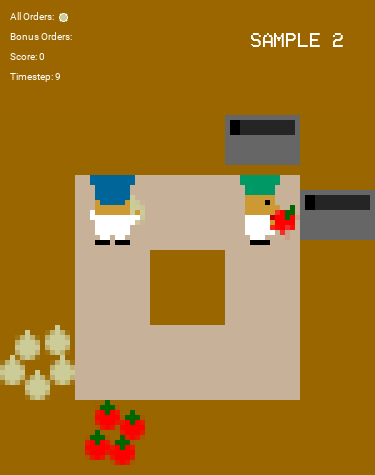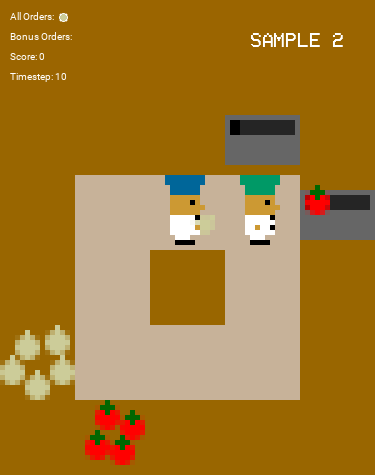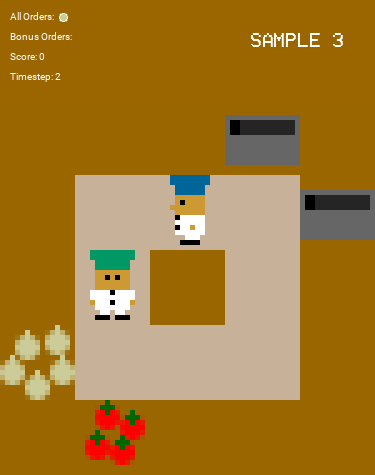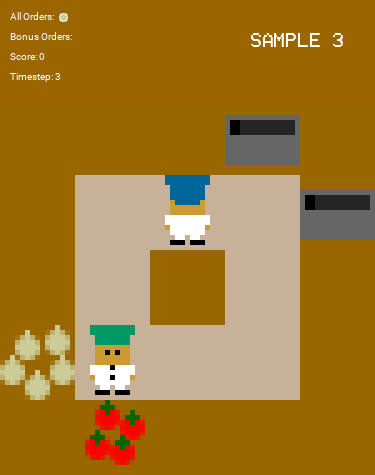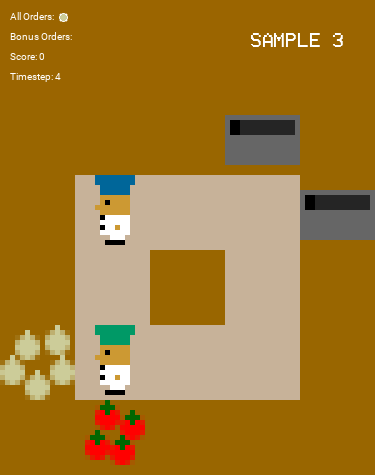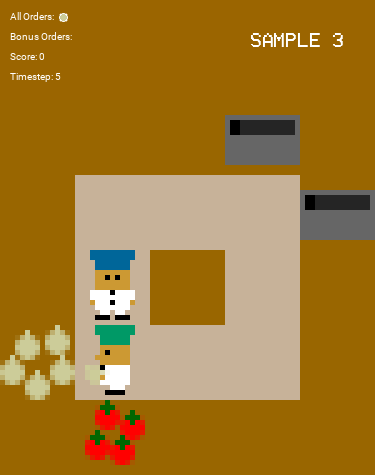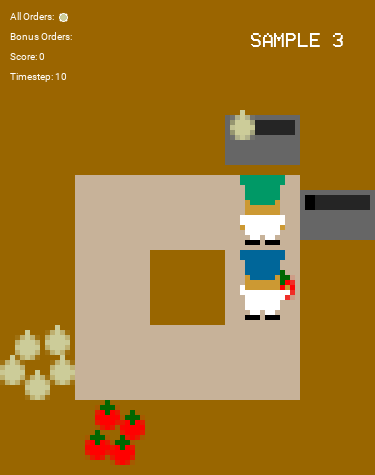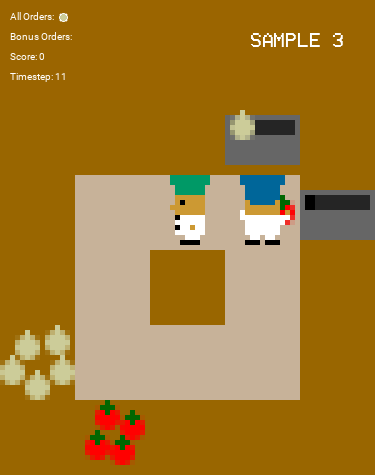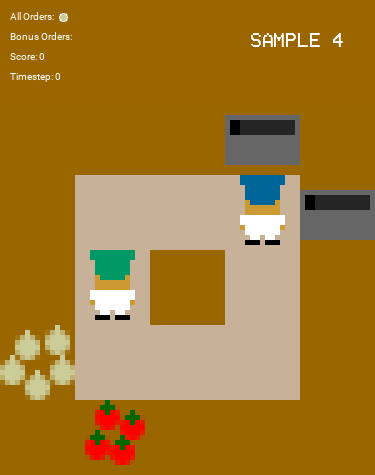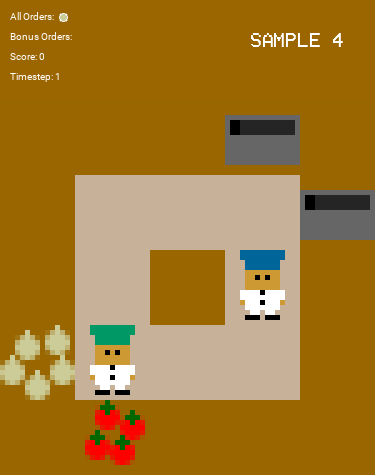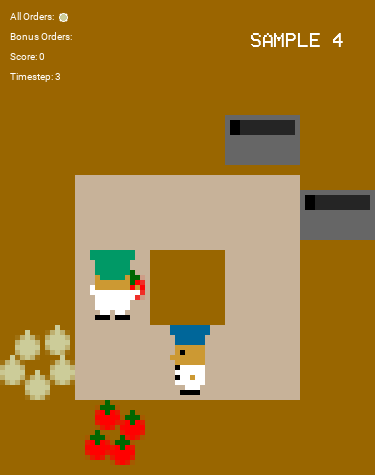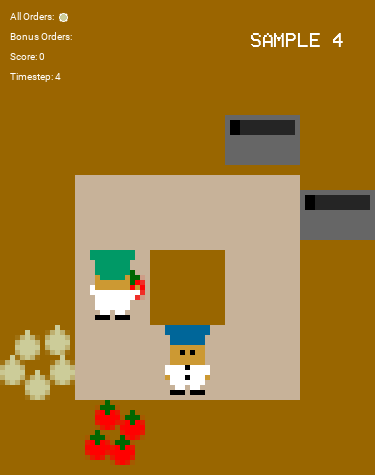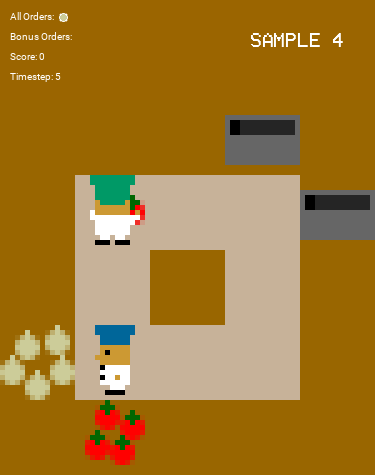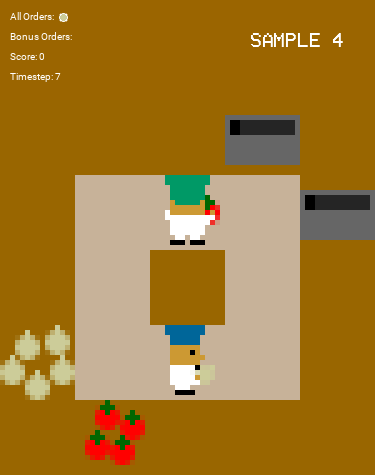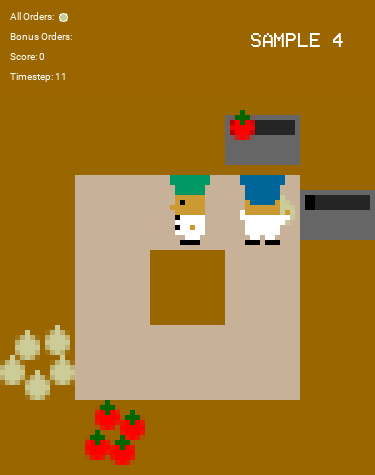Agents get a reward of +1 by placing an onion and a tomato into the same pot within a horizon of 11. Agents can move left, right, up, down, stay still, and “interact” to pick up or place vegetables.
At first examination, one might predict that there should be multiple strategic equivalence classes in this problem, perhaps resulting from which agent gets which vegetable, which pot to use, or the various options for how the agents could walk around the central island to stay out of each other’s way. However, this environment has only a single strategic equivalence class containing all of these variations! Conceptually, this means that both agents do not need to know anything about their partner’s policy in order to play optimally; agents require no preexisting agreements on how to successfully coordinate in the environment.




